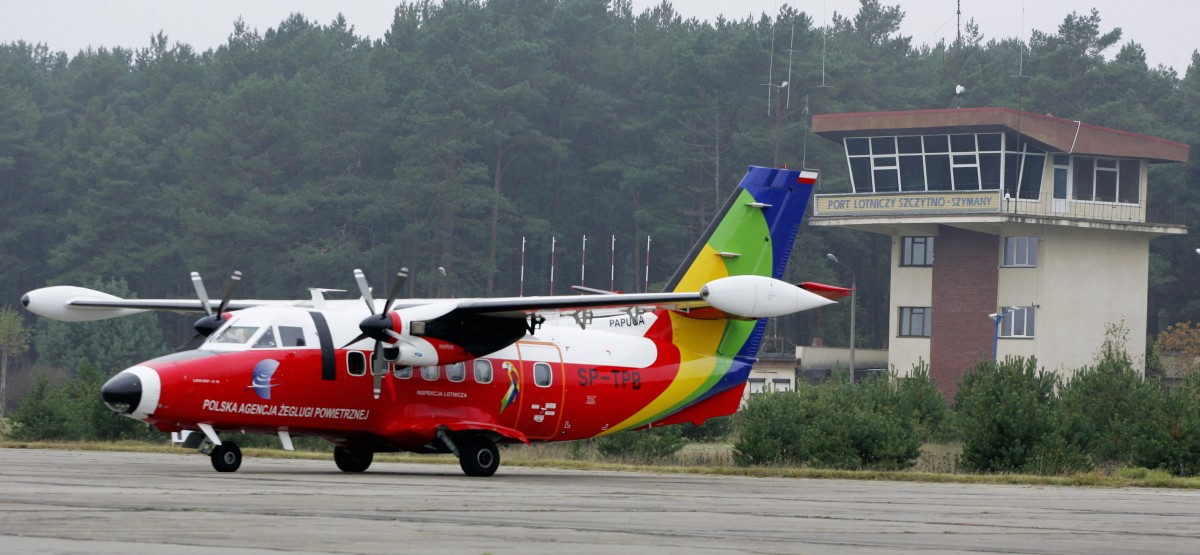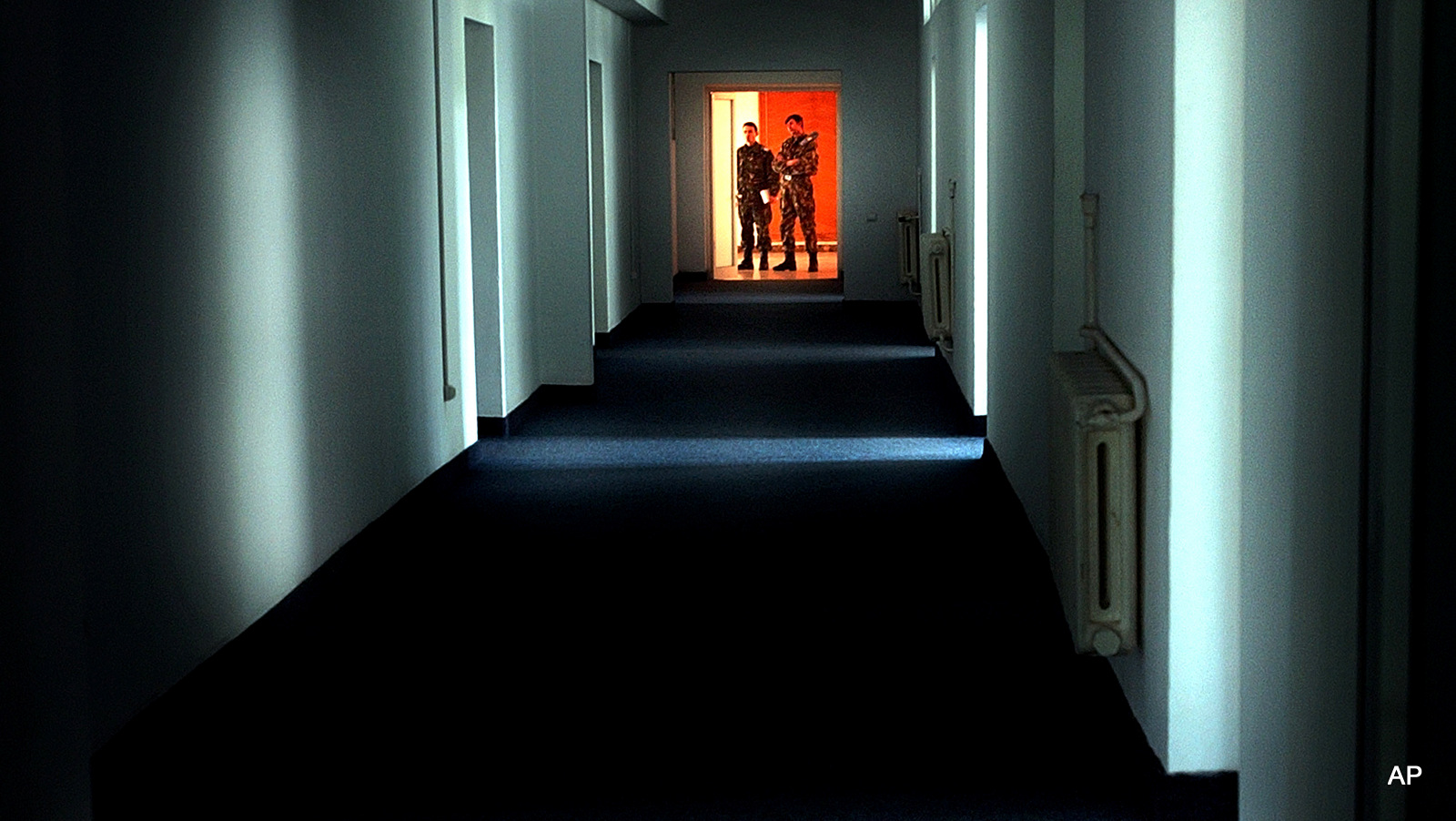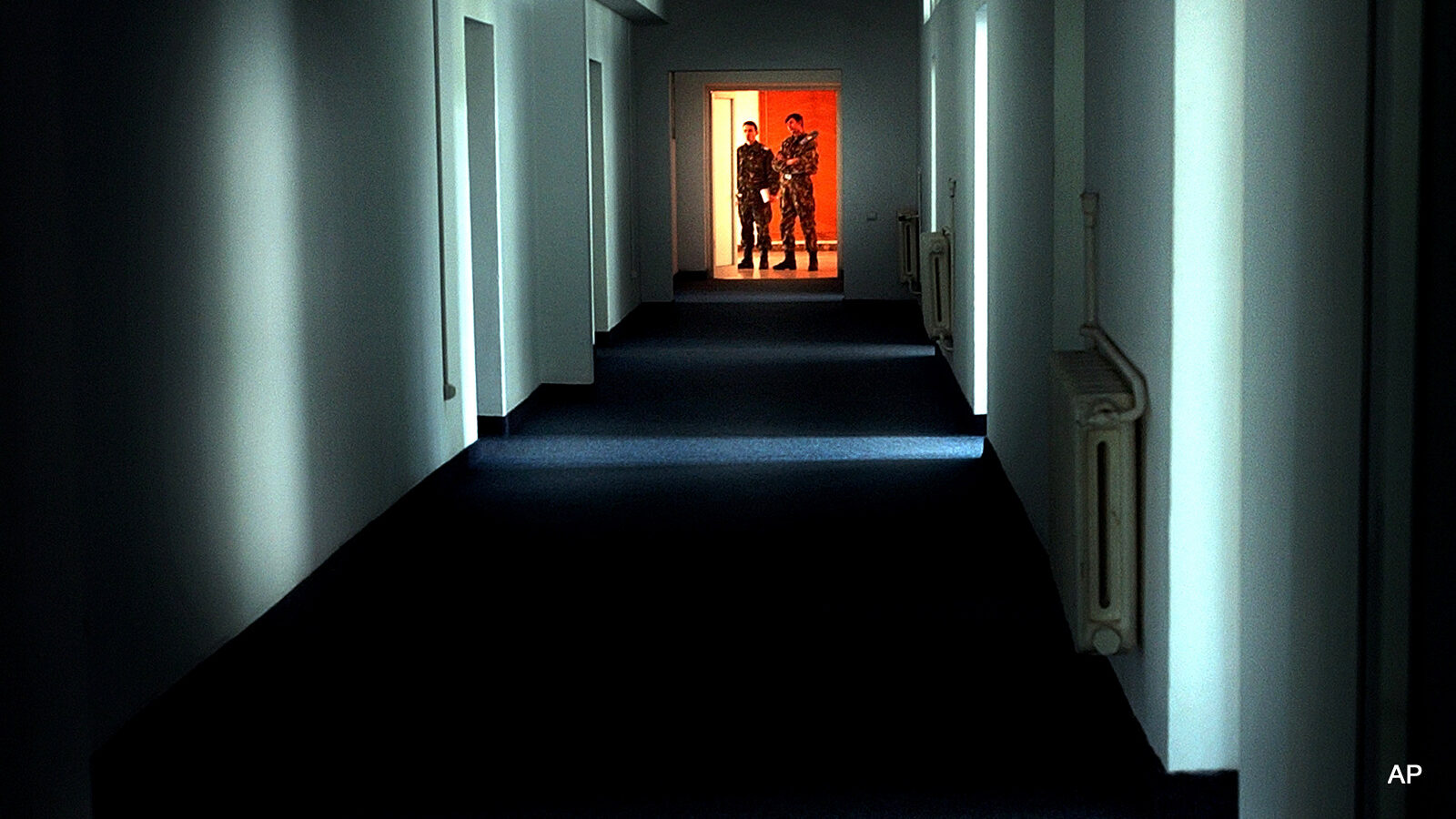 A small plane taxis at the airport in Szymany, Poland, Tuesday, Oct. 19, 2010. Lawyers and rights activists believe that this was the airport used to ferry terrorism suspects in and out of Poland when the CIA ran a secret prison in the eastern European country. Police in Scotland are now investigating CIA rendition programs in their own country.
A small plane taxis at the airport in Szymany, Poland, Tuesday, Oct. 19, 2010. Lawyers and rights activists believe that this was the airport used to ferry terrorism suspects in and out of Poland when the CIA ran a secret prison in the eastern European country. Police in Scotland are now investigating CIA rendition programs in their own country.
GLASGOW — Police in Scotland have asked to see a declassified U.S. Senate report to help an investigation into Britain’s role in the rendition of terrorist suspects who were allegedly tortured by the CIA. Detectives are investigating allegations that U.S. aircraft stopped off at Scottish airports during rendition flights when prisoners were secretly transferred from America to overseas prisons to be interrogated.
Police Scotland began their investigation into rendition flights after research by the Rendition Project in 2013 concluded that airports in Scotland — including Aberdeen, Inverness and Wick — had been used by CIA planes to refuel during top secret missions.
Extraordinary rendition was used by the U.S. government following the Sept. 11 attacks in 2001. The euphemism involved the secret kidnapping, detention and transfer of terror suspects to foreign countries for interrogation and torture. The current police probe in Scotland was ordered after an earlier inquiry, enacted in 2007, concluded there was insufficient evidence to start a criminal investigation. Since publication of Rendition Project’s findings two years ago pressure has increased on U.K. authorities to investigate further, amid suggestions that British involvement was much greater than previously suggested.
Police Scotland has asked for full access to a U.S. Senate Select Committee on Intelligence report published in December. The report said that CIA agents used brutal interrogation techniques on al-Qaida suspects in the years after the 9/11 attacks, and that the security agency misled Americans about its activities, which included subjecting detainees to waterboarding, slapping, stress positions and sleep deprivation. If Police Scotland’s request is granted by U.S. authorities, the full version of the report could reveal potentially significant information withheld at the request of the U.K.’s security services.
This development emerged when the Crown Office and Procurator Fiscal Service (COPFS) — the agency responsible for the prosecution of crime in Scotland — responded to a letter from human rights charity Reprieve, which MintPress News has seen. The letter, dated May 1, 2015, was addressed to Donald Campbell of Reprieve and written by Iain Logan of the Crown Office’s policy division, who wrote:
“Dear Mr Campbell, I refer to your email dated the 31st March 2015 marked for the attention of the Cabinet Secretary for Justice, Michael Matheson MSP. The correspondence has been passed to the Crown Office and Procurator Fiscal Service to reply given that it relates to an ongoing investigation.
I can confirm at this stage that Police Scotland have been instructed to request and consider the unredacted version of the US Senate Select Committee’s Study in to the CIA’s detention and interrogation programme as part of the ongoing investigation in to Rendition Flights in Scotland. This request has been made but nothing has been received at this time.
I hope this information is of assistance.”
In response to the COPFS letter, Campbell said Police Scotland’s request to the U.S. was “really encouraging.”
Speaking to MintPress, he added:
“Reprieve is still very optimistic that this will keep going until we get to the bottom of the situation. We’re trying to find out what process the request has been made through…made to who, and who it was made by, that kind of thing. But we’ll just have to wait and see. I don’t see reasonable justification for refusing to give it to them [Police Scotland]. The main thing we’re hoping is that the Scots and the U.K. government will back up the police’s request and throw their weight behind it because it is obviously very important going forward. But we’re not sure if that’s happened yet either.”
Support for victims of rendition
Reprieve was founded in 1999 by British human rights lawyer Clive Stafford Smith. The London-based organization provides free legal support to people on death row and victims of rendition, torture and extrajudicial imprisonment. Its clients include Abdul-Hakim Belhaj, who was kidnapped in 2004 along with his pregnant wife, Fatima Boudchar, and rendered to Libya. Abdul-Hakim was tortured and imprisoned for six years, and Reprieve has been assisting the couple with legal action against the U.K. government for its part in their ordeal.
Reprieve describes Abdul-Hakim on its website as a “Libyan national and a known Gaddafi dissident.” Abdul-Hakim was detained in China in 2004 with Boudchar, as they were about to leave the country to seek political asylum in the U.K.
Reprieve reports:
“Abdul-Hakim and Fatima were detained in Kuala Lumpur for several weeks, and then told that they would be allowed to travel to the UK, but only via Bangkok. During the flight, Abdul-Hakim was hooded and shackled to the floor of the plane in a stress position, unable to sit or lie for 17 hours. Neither he nor Fatima was aware that the other was on the plane. When they arrived in Bangkok, they were handed over to US authorities, and taken to what they believe was a US secret prison. In between his interrogation sessions, Abdul-Hakim was hung by his wrists from hooks in his cell for prolonged periods, while hooded, blindfolded and viciously beaten. To this day, Fatima finds it difficult to discuss her experiences in the prison.”
They are just two of several rendition victims Reprieve is representing, although there is no evidence yet that any of the organization’s clients were rendered via Scottish airports. There’s also no evidence of any prisoner actually being on board CIA aircraft refuelling in Scotland. However, Campbell said the Rendition Project had provided clear evidence that Scotland was part of a CIA route and there should be further transparency over Britain’s role.
The CIA’s secret stopovers
 Romanian military staff stands at the end of a corridor on the Mihail Kogalniceanu Air Base, some 250 kilometers east of Bucharest, in this Nov. 9 2005 file photo. Establishing the exact nature of Romania’s involvement in a suspected secret U.S. program is crucial to building the case that Washington sidestepped international human rights conventions by persuading allies to perform dirty work on terror suspects that would have otherwise been illegal in the United States.
Romanian military staff stands at the end of a corridor on the Mihail Kogalniceanu Air Base, some 250 kilometers east of Bucharest, in this Nov. 9 2005 file photo. Establishing the exact nature of Romania’s involvement in a suspected secret U.S. program is crucial to building the case that Washington sidestepped international human rights conventions by persuading allies to perform dirty work on terror suspects that would have otherwise been illegal in the United States.
In 2013, the Rendition Project revealed new details of the way in which America’s rendition program operated in the wake of the Sept. 11 attacks. The initiative is a collaboration between Ruth Blakeley, a senior lecturer at the University of Kent, England, Sam Raphael, a senior lecturer at Kingston University, England, and Crofton Black, an investigator with Reprieve.
The Rendition Project is the most comprehensive account to date of the fate and whereabouts of each of those detained and tortured within the program, and it is the world’s largest public database of rendition flights by CIA aircraft. Data collected shows the full extent of the U.K.’s logistical support for the U.S. program, with aircraft linked to rendition operations landing at British airports more than 1,600 times.
Although no detainees are known to have been aboard the aircraft, the CIA was able to refuel during operations that involved some of the most notorious renditions of the post-9/11 years. These included detainees being flown to and from a secret prison in Romania.
With regards to Scotland, the Rendition Project database provides conclusive evidence that airports in the north of the country were visited by numerous CIA planes at the height of the rendition and secret-detention program. The project revealed that five flights with CIA links landed at Wick and Inverness, and another three landed at Aberdeen International Airport.
Investigation under fire
Sharp criticism of the investigation into Britain’s role in rendition has emerged in Scotland, and a human rights group called Scotland Against Criminalising Communities (SACC) is demanding that the Scottish government establish up a judge-led inquiry with the power to subpoena witnesses.
SACC has been campaigning for transparency since CBS’ “60 Minutes” filmed a CIA plane arriving at Glasgow Airport in 2005. This revelation led to police setting up an inquiry in 2007 — an investigation that was only officially made public for the first time on June 5, 2013, when Scotland’s Lord Advocate told the Scottish Parliament that police had found “insufficient credible and reliable information to enable them to commence a criminal investigation.”
Richard Haley, chair of SACC, said exposure of rendition flights helped uncover the extent of kidnapping and torture by the U.S., and ultimately led to the closure of secret CIA prisons – the so-called “black” sites – in Europe. He added:
“Ten years have passed since we first learned of the use of Scottish airports by CIA torture flights. But we are no closer than we were then to knowing how the CIA were able to use our airports in violation of the policy of the U.K. and Scottish governments, in violation of our obligations under the Convention Against Torture, and in violation of the law.”
Yet, while remaining critical of the U.K. authorities, Haley told MintPress that he welcomed Police Scotland’s request to see the U.S. Senate report. He said:
“Anything that increases pressure for the unredacted report to be released is a good thing, in my view, but it’s probably only a small step forward for this investigation. It’s a rather roundabout way of doing it and in any case we know that U.S. senators have pressed for the release of the report, so whether Police Scotland have more influence on the committee than their own senators, remains to be seen. This small step is welcome but I’ll be surprised if it results in a breakthrough in the investigation.”


